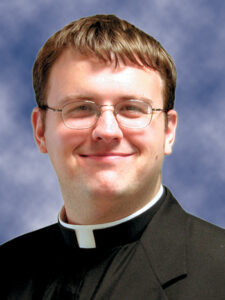 Dear Parishioners,
Dear Parishioners,
This is my fifth and final article talking about the results of the Synod on Synodality listening sessions. This week, I am going to talk about Church music.
In the listening sessions, two basic thoughts were repeated about Church music. One was very glad to see that we are getting away from music they did not like. The other questioned whether or not we should have music at all in Mass. (Some people really want a quiet Mass.) I find these results surprising since usually people talk to me about liturgical music, complaining about hymn selection, the settings used or that they do not like Latin. So, in reaction, I would like to make the following points.
First, a quiet Mass without music is not an ideal that should be strived for in the liturgy, especially for Sunday. The General instruction of the Roman Missal explains this well, “Great importance should therefore be attached to the use of singing in the celebration of the Mass… Although it is not always necessary (e.g., in weekday Masses) to sing all the texts that are in principle meant to be sung, every care should be taken that singing by the ministers and the people not be absent in celebrations that occur on Sundays and on Holy Days of Obligation.” (GIRM 40)
Second, I will not criticize anyone for preferring one type of music over another. However, this means that when deciding what music is proper for the liturgy, we have to again refer back to the Church for guidance on what she considers to be the most fitting music. The GIRM says, “The main place should be given, all things being equal, to Gregorian chant, as being proper to the Roman Liturgy. Other kinds of sacred music, in particular polyphony, are in no way excluded, provided that they correspond to the spirit of the liturgical action and that they foster the participation of all the faithful.” (GIRM 41)
Third, the Church also calls us to be familiar with Latin because it is part of our heritage. She says, “Since the faithful from different countries come together ever more frequently, it is desirable that they know how to sing together at least some parts of the Ordinary of the Mass in Latin, especially the Profession of Faith and the Lord’s Prayer, according to the simpler settings.” (GIRM 41)
In conclusion, Mass is where we come together to worship God and the music should match and enhance that experience. We should primarily sing the texts of the Mass. But when we do sing hymns, those hymns should be without any superficiality or banality and they should be theologically correct. God deserves our best music possible and all focus should be on Him at Mass. I will continue to work to always improve the liturgy at the Church and a large part of that is the music.
God bless,
Fr. Carter



